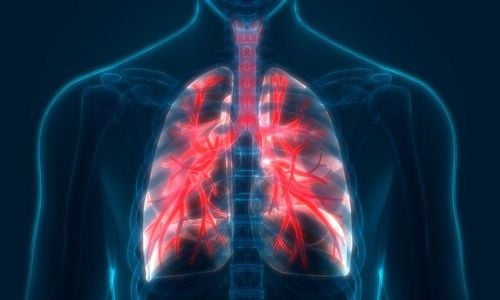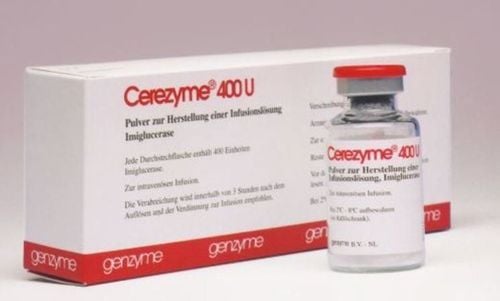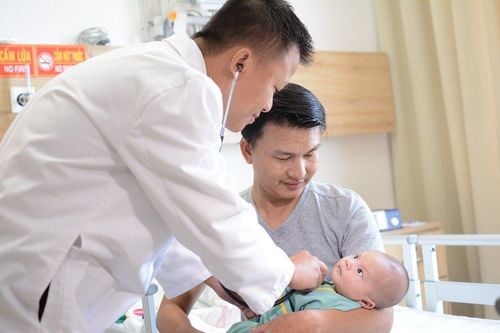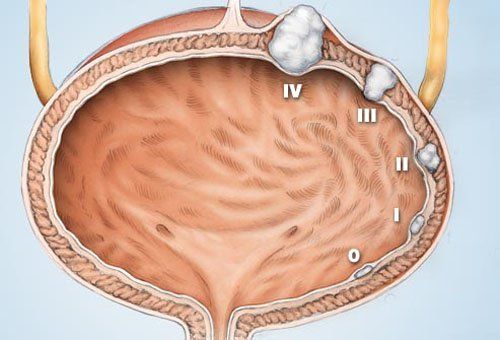This is an automatically translated article.
Many people have risk factors but do not get bladder cancer, while people with this disease may have few or no risk factors. However, it's important to know about the risk factors for bladder cancer because there may be things you can do to help lower your risk.
1. Bladder Cancer
Bladder cancer is one of the most common cancers. Bladder cancer occurs in men more often than in women and usually affects older adults, although it can occur at any age.
Bladder cancer usually starts in the cells (urinary cells) that line the inside of the bladder, the hollow organ, the muscle in the lower abdomen that stores urine. Although it occurs most commonly in the bladder, this type of cancer can occur in other parts of the urinary drainage system.
About 7 out of 10 bladder cancer patients are diagnosed starting at an early stage when bladder cancer is highly treatable. However, even early-stage bladder cancer can recur in the bladder. For this reason, people with bladder cancer often need follow-up tests for many years after treatment to detect bladder cancer that has recurred or progressed to a more advanced stage.
2. Cause
Bladder cancer develops when cells in the bladder begin to grow abnormally. Instead of growing and dividing in an orderly manner, these cells develop mutations that cause them to grow out of control and not die. These abnormal cells form a tumor.
Bladder cancer causes include:
Smoking and other tobacco use; Exposure to chemicals, especially working in a job that requires chemical exposure; Past exposure to radiation; Chronic irritation of the bladder mucosa; Parasitic infection.

Hút thuốc có nguy cơ ung thư bàng quang
3. Factors that may increase the risk of bladder cancer
3.1. Modifiable risk factors Smoking Smoking is the most important bladder cancer risk factor for bladder cancer. Smokers are at least 3 times more likely to develop bladder cancer than non-smokers. Smoking causes about half of all bladder cancers in both men and women.
When you smoke, your body processes the chemicals in the smoke and excretes some of them in the urine. These toxic chemicals can damage the lining of your bladder, which can increase your risk of cancer.
Workplace exposure Some industrial chemicals have been linked to bladder cancer. Chemicals called aromatic amines, such as benzidine and beta-naphthylamine, which are sometimes used in the dye industry, can cause bladder cancer.
Workers in other industries using certain organic chemicals may also have a higher risk of bladder cancer. Industries that carry a higher risk include manufacturers of rubber, leather, textiles and paint products as well as printing companies. Other workers at risk of developing bladder cancer include painters, mechanics, printers, hairdressers (perhaps because of high exposure to hair dye) and truck drivers (possibly from exposure to hair dyes). with diesel fumes).
Smoking and workplace exposure can act together to cause bladder cancer. So smokers who also work with cancer-causing chemicals have a particularly high risk of bladder cancer.
Not drinking enough water People who drink a lot of water, especially water, every day tend to have lower rates of bladder cancer. This may be because they empty their bladders more often, which can keep chemicals from remaining in the bladder.
3.2. Risk factors that cannot be changed
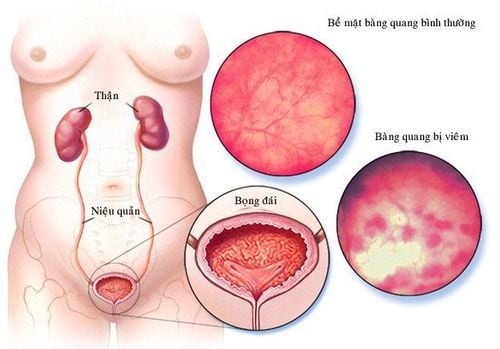
Viêm bàng quang mãn tính
Age and gender The risk of bladder cancer increases as you get older. Bladder cancer can occur at any age, but it is rarely found in people under the age of 40. About 9 out of 10 people with bladder cancer are over 55 years old.
Bladder cancer is much more common in men than women.
Chronic cystitis and infection Urinary tract infections, kidney and bladder stones, bladder catheters left in place for a long time, and other causes of chronic (ongoing) bladder irritation have been associated with bladder cancer (especially squamous cell carcinoma of the bladder). But it's not clear whether they actually cause bladder cancer.
History of previous cancer treatment Urinary carcinomas can sometimes form in different areas in the bladder, as well as in the lining of the kidneys, ureters, and urethra. Having cancer in the lining of any part of the urinary tract puts you at higher risk of getting another cancer, either in the same location as before or in a different part of the urinary tract. This is true even if the first tumor is completely removed. For this reason, people who have had bladder cancer need careful monitoring to look for new cancers.
Treatment with the anticancer drug cyclophosphamide increases the risk of bladder cancer. People who receive radiation therapy that targets the pelvis for previous cancer have an increased risk of bladder cancer.
Birth defects Before birth, there is a connection between the navel and the bladder. This is called the urachus. If part of this connection remains after birth, it can become cancerous. Cancers that start in the urachus are usually adenocarcinomas, which are made up of cancerous gland cells. About one-third of the bladder's adenocarcinomas begin here. But this is still rare, accounting for less than half of 1% of bladder cancers.
Genetics and family history People who have a family member with bladder cancer have a higher risk of developing the disease. Sometimes this can be due to family members being exposed to the same cancer-causing chemicals (like those in cigarette smoke). They may also share changes in certain genes (like GST and NAT) that make it harder for their bodies to break down certain toxins, which can make them more susceptible to bladder cancer.
Vinmec International General Hospital is one of the hospitals that not only ensures professional quality with a team of leading medical doctors, modern equipment and technology, but also stands out for its examination and consultation services. comprehensive and professional medical consultation and treatment; civilized, polite, safe and sterile medical examination and treatment space. The hospital provides customers with cancer screening packages such as: Lung cancer screening package, Breast cancer screening package, Stomach cancer screening package, .... helping customers to actively check health and cancer prevention.
Customers can directly go to Vinmec Health system nationwide to visit or contact the hotline here for support.
References: mayoclinic.org, cancer.org





